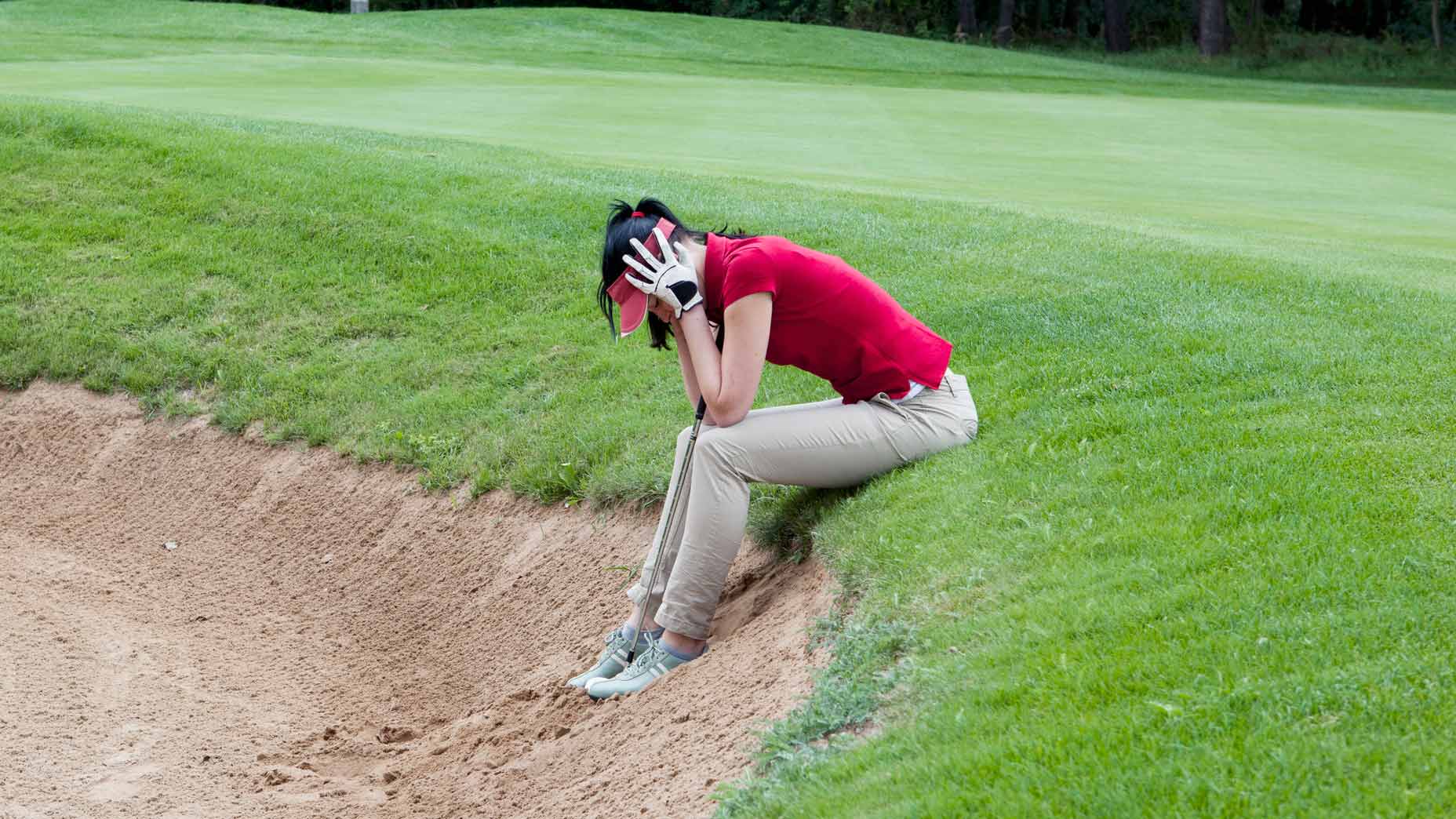Golf is a complicated and, at times, rather cruel game. It’s easy to feel defeated and discouraged, but don’t worry, we’re all in this together!
To prove it, I put a simple question to the members of our How To Hit Every Shot Facebook group, a game improvement group that you can join for free right here: What’s the biggest mistake holding you back? Here’s what they said, along with a few notes from me about them.
1. ‘Not taking enough club’
Not taking enough club is a classic problem among recreational golfers. Amateurs tend to miss short about 70 percent of the time, and while some of that can be attributed to inconsistent contact, a lot of that is also poor decision making.
“I need to take one extra club and swing easy with good tempo.” Rex Baumgartner says. “I need to stop the ‘I’ll just hit a hard 8’ shot.”
2. ‘Confidence to close out a round’
It’s ironic that when things go well on the golf course, we start doing things differently than whatever brought us to that point. Pros talk a lot about the boring stuff: Taking one shot at a time, staying in the moment, focusing on their routine. The same should go for the rest of us. Forget about the scorecard, and try to take it one shot at a time.
3. ‘Overthinking’
This was the most popular comment in the thread: Thinking too much, overthinking, whatever you may call it. It’s easier said than done, but the key is to reduce things to their simplest form. Or just try another route:
“I have a beer to avoid overthinking,” says Joel Kanunu.
4. ‘Green reading’
One simple way is to improve your green reading is to invest in an app, like our affiliate company GolfLogix, to help you read the greens the same way pros do. Outside of that, a simple way to improve your green reading is to look for the high spots. Where’s the high spot on the green, and where is it along the line of your putt?
5. ‘Bad tempo’
Fast is fine, but you want smooth speed. Especially in transition, as you fully finish your backswing and begin your downswing. If you rush that part of your swing, you’ll struggle to keep the ball in play.
6. ‘Being too hard on myself’
Golf is a game to be enjoyed! It’s ok to get angry, as long as you get it out of your system fast. Don’t let it linger, and definitely don’t let it bother your playing partners — don’t be that guy.
7. ‘Bad grip and fundamentals’
This really is such an important mistake to avoid, especially for beginners. If you have bad fundamentals, your golf swing will get off on the wrong foot and it could take years of hard work to correct it. Pay attention to your grip, posture, stance, and alignment (more on that later) and you’ll thank yourself later.
8. ‘Rushing warm-up’
GOLF Top 100 Teacher Justin Parsons told me something interesting a few days ago that applies here: “Most golfers,” he said, “would be better off spending 10 minutes before their round stretching than hitting golf balls.”
And he’s right.
9. ‘Playing the wrong tees’
Tee it forward, there’s no shame in it! The only shame comes from being the guy who is obviously playing from the wrong tees, not having fun, and hurting pace of play for the rest of us.
10. ‘Swaying on the backswing’
Swaying is such bad news for your golf swing, because it moves around the bottom of your swing. Sometimes, you’ll hit behind the ball. Other times, ahead. You can’t hit crisp, consistent shots that way.
Here’s a drill to help with it.
11. ‘Not committing to the shot’
What does “committing” to the shot mean? It means making a decision, and not second-guessing. If you’re not sure about the club or shot you’ve chosen, start again. But once you’ve made your choice, it’s go time.
12. ‘Alignment’
Aiming incorrectly can have awful knock-on effects for your golf swing, too. You’ll start compensating without even realizing. Develop a pre-shot routine, use an intermediary target, and throw an alignment stick on the ground when you’re on the range.
13. ‘Leaving putts short’
For most golfers, renowned putting guru Phil Kenyon says the putts to practice the most are those between 5 and 15 feet. You’ll get the best of both worlds: practicing your distance control while starting putts on line.
14. ‘Hanging back’
The opposite of sliding, transferring your weight forward on the downswing is crucial to hitting good shots — and happens earlier than you think.
15. ‘Not staying with the shot’
Keeping your head down is generally considered a pretty bad piece of advice, but like everything, there’s an element of truth to it. Rather than “keep your head down,” it’s better to follow the golden rule: That to send the ball into the air, you need to hit down into the ground.
